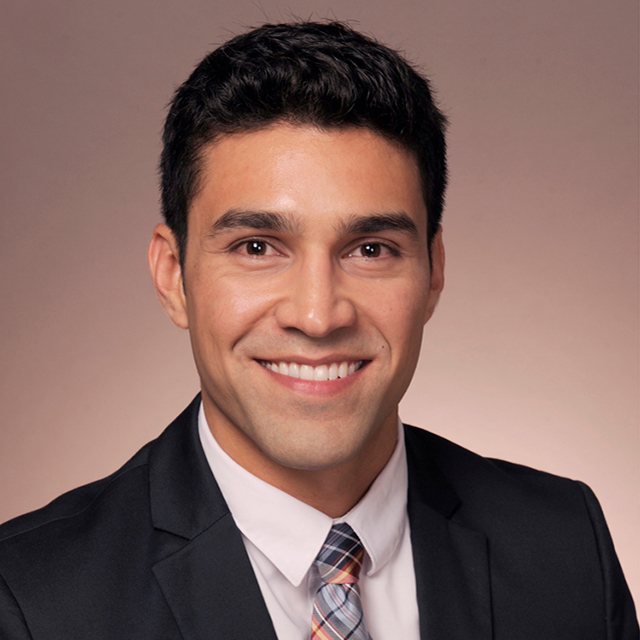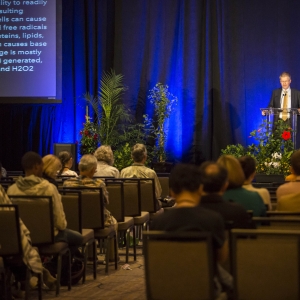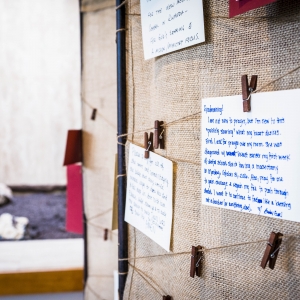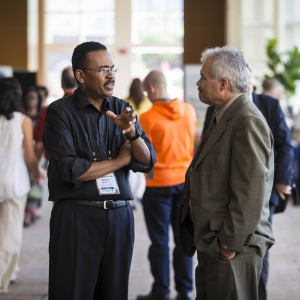
James Tarin, MD
Radical Practice How the 2016 AMEN Conference impacted me
Last October, I had the privilege of attending my first AMEN conference in Indian Wells, California. Joined by over one hundred first-time attendees, it was clear to me why AMEN is growing. It was definitely a very enriching experience.

The group was diverse. Students, residents, practitioners, and retirees all joined together for inspiring messages that centered on the theme: Radical Practice: Healing in the Eleventh Hour. With 561 total attendees, including over one hundred sponsored medical and dental students; the 12th Annual Conference was a testament of AMEN’s expanding impact both on a national and international level. Attendees included guests from Australia, Austria, Belgium, Bermuda, Canada, Germany, the Philippines, and Romania.
I can still hear the words, “Let your faith be a stimulant, and not an opioid,” uttered in a suave Australian accent as Dr. Daryl Cheng recounted lessons he learned in his journey of faith through the medical field. Through this message and others, I was led to reflect on my own story. I pondered on the pages still to be written as I patiently wait for the completion of my residency training.
I am currently a third year family medicine resident at John Peter Smith Hospital in Fort Worth, Texas. While I am happy to enter this field, I did not start residency with family medicine in mind. Although I was interested in primary care when I started medical school, this rapidly changed during my clinical rotations. I quickly became impatient with the seemingly endless counseling sessions on chronic disease, which did not appear to have demonstrable effects on patient outcomes.
The surgery field became much more appealing to me, as it afforded the satisfaction of rapid surgical cures. After much deliberation, I decided to pursue obstetrics and gynecology, a field that seemed to be the perfect combination of surgery and primary care. I was thrilled to start my intern year in the largest OB/Gyn program in the country. Yet to my surprise, God was preparing to teach me a valuable lesson that applies to both medicine and ministry. The greatest results are not usually accomplished quickly, but come from a perseverant, diligent labor of love.
As my residency started, I enjoyed welcoming new life into the world, but I also encountered the opposite end of the spectrum. I was required to do a month of Medical ICU and internal medicine, which I later realized was divinely orchestrated. I saw patients clinging to dear life through tubes and lines as I made my rounds in the ICU. No matter how many procedures and medications I prescribed for my sickest patients, most eventually succumbed to the seemingly irreversible ravages of chronic disease. These experiences left an unsettling feeling in my heart. I realized I was learning to palliate disease, but was not healing people as Jesus had done.

The question continued to grow in my mind. “How can I continue to celebrate the joy of new life being born, knowing that in a matter of years these same lives may end in a way not much different than my ICU patients?” The vigorous cries for the first breath of life seemed drowned out by the ringing alarms that often hailed another breath gone forever. When my off-service rotations ended and I started a month of labor & delivery night shifts, I found myself confused and discouraged.
My disordered sleep schedule made for restless nights on my off days. Sitting in my apartment one night, my eye caught sight of The Ministry of Healing on our bookshelf. Surprisingly, despite being a Seventh-day Adventist physician, I had never heard of this book. As I read the first chapter, the wisdom I had so desperately searched for when considering a specialty became glaringly obvious to me. As I contemplated the character of the Divine Physician, my heart found peace. Yet with this peace also came the awareness that my current training would never equip me to engage in the type of medical ministry I felt the Holy Spirit leading me to.
After much thought and prayer, I was convinced that I should quit my residency and reapply for family medicine—a field better tailored to the new medical ministry goals the Lord had placed on my heart. Although I faced considerable opposition from my colleagues and program director, I ultimately reapplied and was blessed to match to my first-choice program the very next year.
Before starting family residency, I read The Ministry of Healing voraciously. I learned many lessons about true healing. I saw like never before how the Adventist health message lays the framework for the gospel and healing to intersect in modern times. I saw that the message centers on Christ’s sacrifice, empowering those who believe to be made whole again. I realized the potential of the health message as the “great entering wedge…the door through which the truth for this time is to find entrance to many homes…” – Evangelism, p. 513-514.
As I read, I was convicted that I, as an emissary of Christ’s healing, had been “a despiser of good,” by ignoring or rejecting many of the truths found in the health message. Through the power of the Holy Spirit, I became passionate about following the light God had given. The wisdom gained as I read these writings has empowered me, my family, and many of my patients with practical ways to cooperate with the Divine Physician in being healed if we “are willing to be made whole.”

Attending the AMEN conference encouraged me to continue sharing the health message with my patients. I was inspired by the stories of providers who are not ashamed of spreading the gospel through healthcare ministry. I listened with amazement as doctors Aysha Inankur and Neeta Hillman dialogued on the root causes of metabolic syndrome, showing how modern scientific literature supports the validity of the Adventist health message for chronic disease reversal. I learned how even our gut microbiome is altered in our favor when we feed our bodies properly—a testament that even on the microscopic level we are “fearfully and wonderfully made.” Psalm 139:14.
Attending the AMEN conference inspired me to speak about the Adventist health message for my senior resident presentation. Since my talk, several colleagues have asked for guidance on better nutritional choices. Even more importantly, many have expressed interest in learning more about my faith and what Seventh-day Adventists believe. My colleagues’ curiosity serves as a constant reminder that we are surrounded daily with opportunities to witness. Often it simply means being willing to share our own personal testimony, reminding me that, “Truth that is not lived, that is not imparted, loses its life-giving power, its healing virtue. Its blessing can be retained only as it is shared.” – Ministry of Healing, p. 149.
The same loving Savior that asked the paralytic: “Are you willing to be made whole?” asks us today, “Are you willing to help make others whole?” I’m grateful for the privilege of joining in this work and am looking forward to learning more practical ways to put this into practice on a daily basis at the next AMEN Conference. This year’s conference ‘Are You Willing?’ will be held October 26-29, 2017 in Hilton Head Island, South Carolina. I invite you to join me.
<< | Table of Contents | >>
